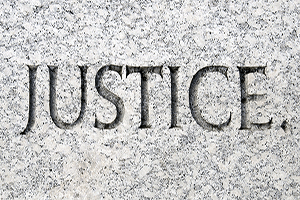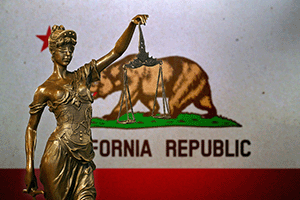California Court Records Search
How to Lookup Court Records in California
Accessing California court records can often seem complicated. Especially when it comes to the largest state in the US. In order demystify the process of accessing CA court records, there are some important things to know. First, what county the court case took place in, as well as what type of CA courthouse this record belongs to. Having this basic information can simplify your efforts in running a California court records search online.
We will delve into the different types of courts within the state. From the CA Supreme Court to the Courts of Appeal and Superior Courts, we'll cover them all. We will also discuss what information is publicly available. This includes case numbers, party names, filings, judgments, and more.

The Hierarchy of California Courts and Types of Cases They Hear
California's court system is one of the largest in the world. It serves a growing population that is over 39 million people. The CA criminal justice system is hierarchical in its nature. At the very top of this hierarchy is the Supreme Court of California, the highest in the state.
Below the Supreme Court are the CA Courts of Appeal. These are intermediate judicial branches that hear cases from the lower courts. The bulk of the judicial system in the state is made up of CA County Superior Courts. These courthouses hear trial cases that range from felony criminal cases to civil lawsuits, at the county level. Because of this, the state has a variety of courthouses can be categorized into two types: criminal and civil.
Criminal cases are typically when the state prosecutes someone for a criminal act. These cases, if the person is convicted, usually result in misdemeanors or felonies, and jail or prison time. Civil cases, on the other hand, usually involve disputes between individuals or organizations. These might be related to signed contracts, personal injuries, and property disputes. Understanding the difference between these two types of cases is important conducting a California court case search.
Navigating California Public Court Records
The California Public Records Act (CPRA) governs the public's access to governmental records in California. This includes court records. The Act asserts that access to information concerning the conduct of the people's business is a fundamental and necessary right of every person in the state.
Court records typically contain a wealth of information. This can include case numbers, party names, filings, judgments, and more. However, not all court records are publicly accessible. Certain records, or parts of records, may be deemed confidential. This could be due to privacy concerns, ongoing investigations, or other legal reasons.
Understanding the limitations of public access is crucial when searching for California court records. While the CPRA promotes transparency, it also respects the need for confidentiality in certain cases. As such, some records may be redacted or withheld entirely. It's important to be aware of these potential limitations when conducting a CA court records search.
How to Access State-Level CA Court Records
Accessing state-level court case records can be done through the CA Judicial website. This online portal provides a comprehensive database of records from across the state. It's a reliable resource for those wanting to run a California court case search by name or case number.
However, not all records may be available electronically. Some may require an in-person visit to the courthouse where the case was heard. This could be due to the age of the case, the type of case, or cases of a sensitive nature. If this is the situation where you cannot find the records online, you can contact the clerk of the courts for more information.
For federal cases, the Public Access to Court Electronic Records (PACER) system is a helpful tool. PACER provides access to case and docket information from federal appellate, district, and bankruptcy courts. However, it's important to note that PACER does not include access to local cases, only federal cases.
To obtain copies of a specific record from any of these resources, you will need to register first, and pay per copy. These fees can range quite a bit depending on the type of record and if it's a certified copy. While some records available for online reference only may not come with a fee at all.

How to Access CA County Court Records
When conducting a CA county court records search, you will need to know the specific county where the case was filed. This is because each county in the state is independent in it's maintains its own set of case records. Knowing the county can help you better target your search and you'll get more accurate results. This is important because many people have the same names in this large state, so knowing the specific county will help narrow down your results.
Many counties in the state offer online case search tools. These tools can be a convenient way to access case files without having to visit the courthouse in person. If you know the specific case number then you will greatly increase your chances of finding the correct record on the first attempt. However, the availability of these online tools can vary from each county.
If online tools do not provide the results you need, try contacting the County Clerk's office directly. This office is responsible for maintaining court case records and can assist with most requests. You may need to schedule an appointment to talk to someone directly as many courthouses are inundated with these requests.
Third-Party Websites and Alternative Online Resources
In addition to official CA courthouse websites, third-party websites can also be used to run a California court case search. These resources are often referred to as public record website. These sites typically aggregate data from various sources, providing a very detailed picture of a person's legal battles including arrests, criminal convictions, warrants, and incarcerations. These are convenient resources however, it is very important to verify the credibility of these sites. Most of these resources charge fees for their services.
Privacy, Digitalization, and the Future of Online Records Access
Privacy is a very big concern when it comes to accessing these public records online. Certain sensitive information, such as social security numbers, national security criteria, or names of minors is often redacted. This helps to protect individuals' privacy and information of a sensitive nature. It is also important to anyone obtaining information online to use it as directed and within the guidelines of the law.
As we move towards a more digital future, the accessibility of this publicly available information will continue to improve. Many view Artificial Intelligence (AI) as being a key factor in tracking down information in a fast and efficient way. Improvements in technology can also help keep better track and organization of all case records and help to ensure that there are no errors in reporting.
Are California Court Records Considered Public?
Yes, most all CA court records in the state are considered public records which means that anyone can view and access them online. You can access these through the state's judicial website, or through various third party public record sites. You can typically search by case number or by first and last name.
How to Seal a California Court Record
If you want to seal your CA court case records from public view, there is an easy way to go about this. First you must confirm that your records are eligible to be sealed. You can do this through the clerk of the courts, or with the help of an attorney. Then you will want to make sure that you have fulfilled any court requirements or court orders. Then you can petition to have your case sealed through the state. They offer some self-help resources that are free to use but if your case is complicated, you may want to hire an attorney for assistance.

